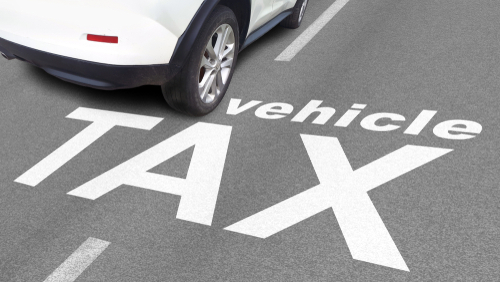On Monday (Jan. 8), the Motor Vehicle Property Tax Taskforce Subcommittee on Collecting Revenue at the State Level explored strategies that would recoup lost revenue in the event of a phased-out motor vehicle property tax.
One of the proposed options includes the typical mantra for progressives: tax the rich.
According to the Vice-Chair of the committee, Rep. Brandon Chafee (D-Middletown), a proponent of increasing taxes on high-income individuals, stated that “about $1.04 billion is raised in revenue off the car tax each year at the municipal level.”
Under his proposal, individuals earning between $1 and $2 million would face a 1 percent increase in their state income tax bills, generating an estimated $369 million in new state revenue. For those with income exceeding $2 million, Chafee recommends a tax rate of 8.99 percent, expected to yield an additional $177 million; additionally, his proposal includes a 4 percent surcharge on capital gains tax rates, contributing an estimated $584 million in new revenue.
Chafee admits that there are “political considerations that would be difficult to overcome,” but that this would be “the most simple way” to make up for the lost car tax revenue. He asserts that the plan would alleviate financial strain on working and middle-class individuals, with the negative impact reserved for those earning over $1 million annually.
Meanwhile, he recognized there is a disparity in car tax payments between a vehicle parked in Greenwich, which pays three times less than those in Hartford. To address this, he proposes implementing a statewide mill rate of 28 mils. It’s important to note that this adjustment would result in an increased car tax burden for residents in 68 towns including Groton, Union and Shelton.
Chafee’s was not the only proposed plan, as Jennifer Gauthier from the Office of Policy and Management (OPM) pitched an increase in the gas tax where individuals driving more would incur higher costs — with an added bonus of capturing additional revenue from out-of-state drivers. However, Mark Boughton, Commissioner of Connecticut’s Department of Revenue Services, cautioned against this idea, pointing out that the state’s push on electric vehicles is leading to a decline in gas tax revenue.
Boughton also hinted at an anticipated discussion within the next five to ten years regarding a mileage tax user fee. This proposed fee would not be based on gas consumption, but rather on the number of miles driven, which could be a potential avenue to recover the lost tax dollars resulting in the elimination of the motor vehicle tax.
Currently, Connecticut car owners face property taxes that are “99.1% higher than the national average and the third-highest rate in the country,” making the state the most expensive place to own a car according to a 2023 report by automotive industry news outlet Automoblog. Connecticut is also one of 30 states that levy a personal property tax on vehicles.

